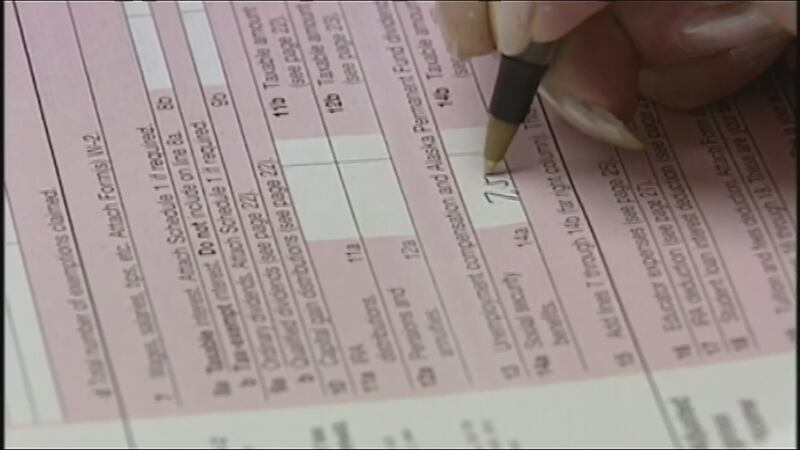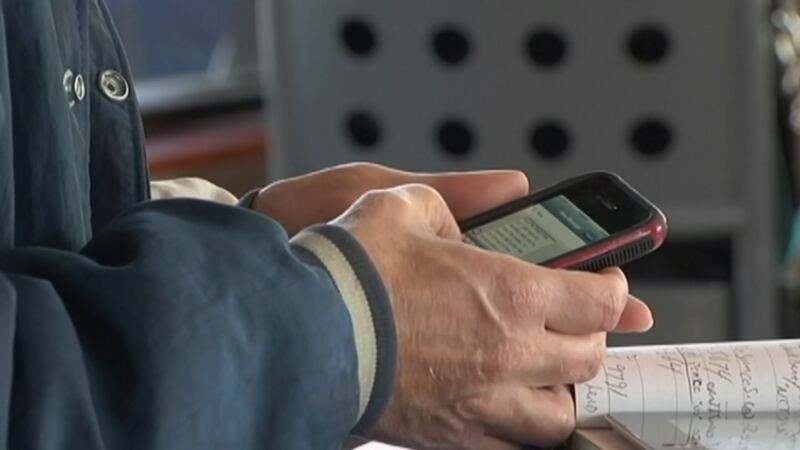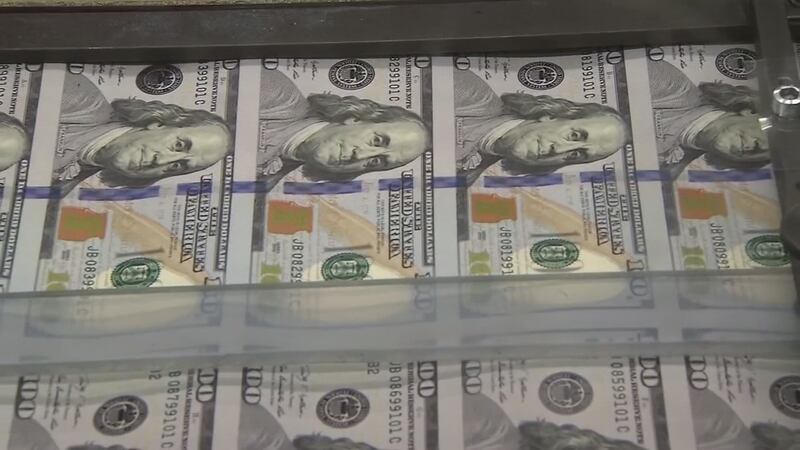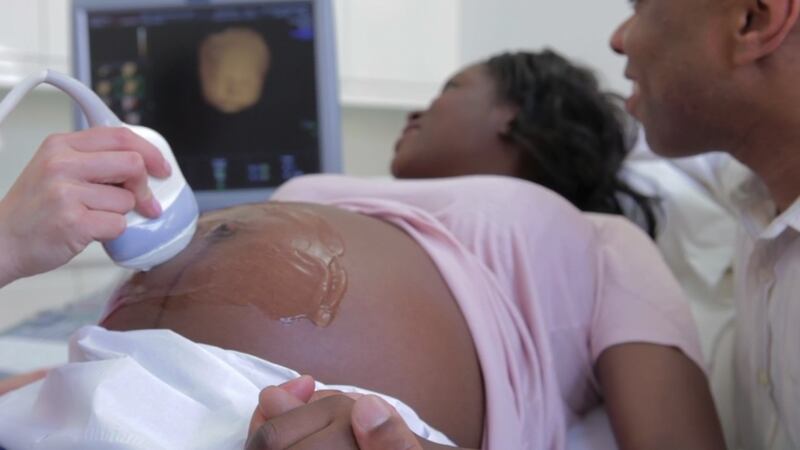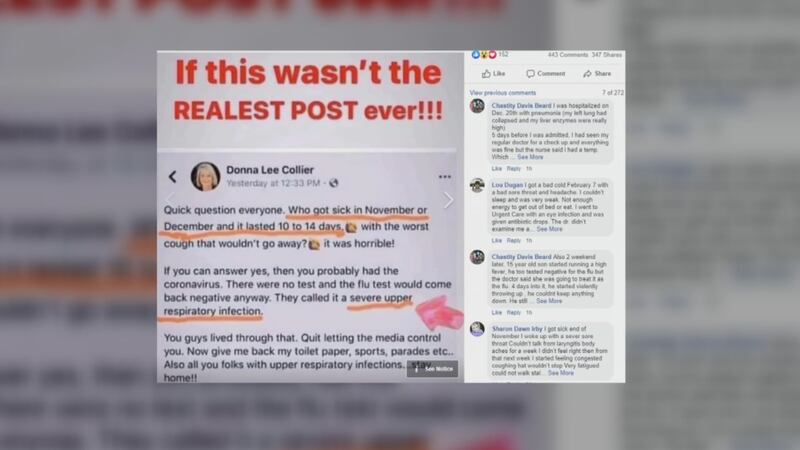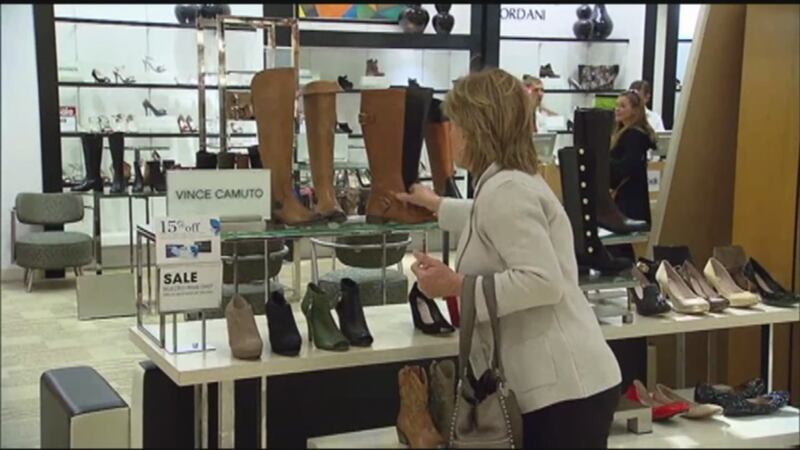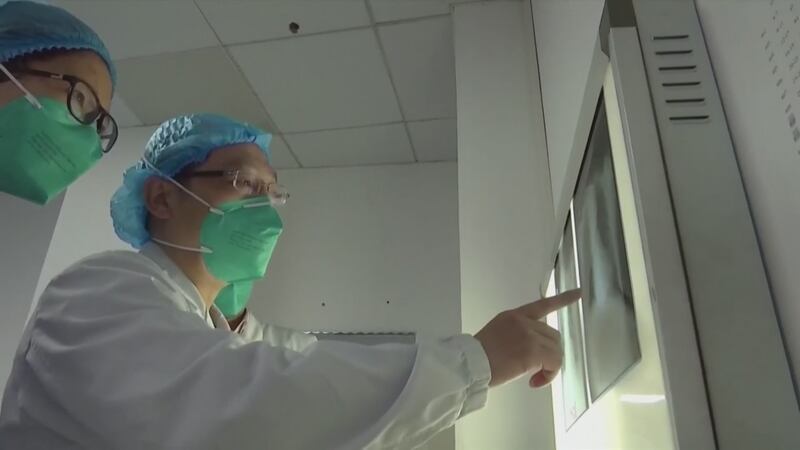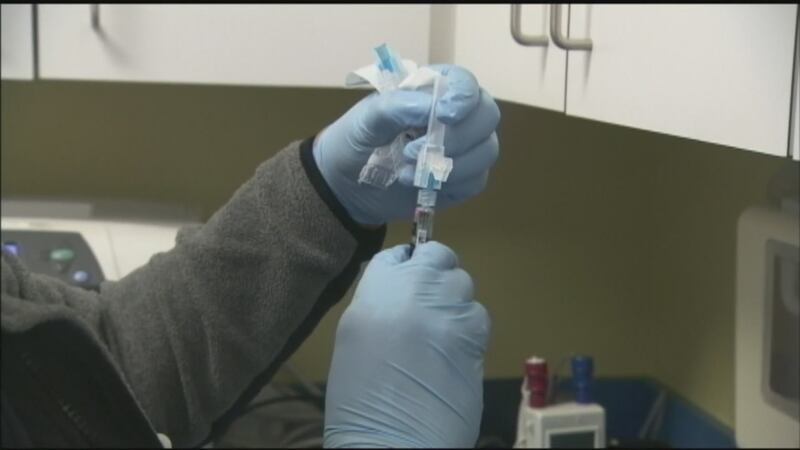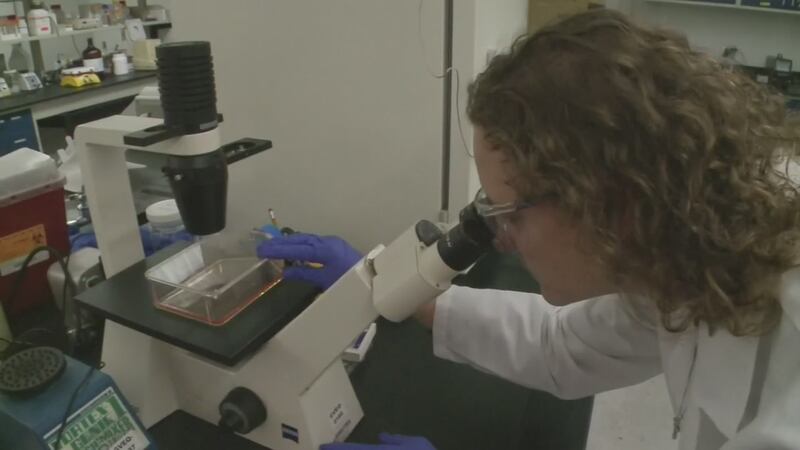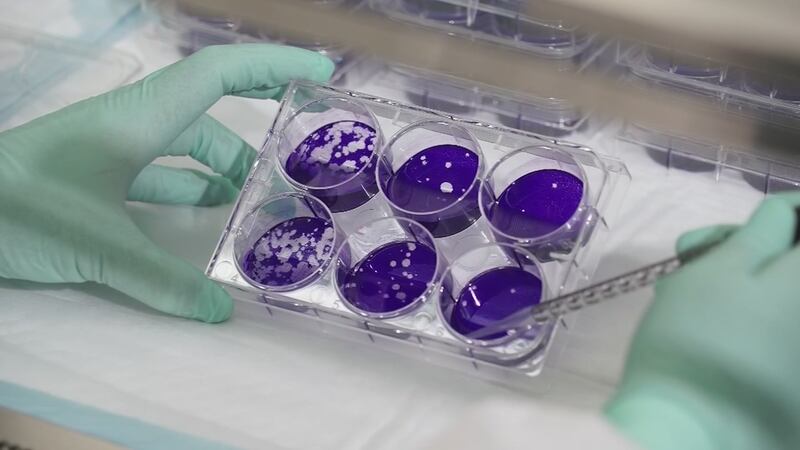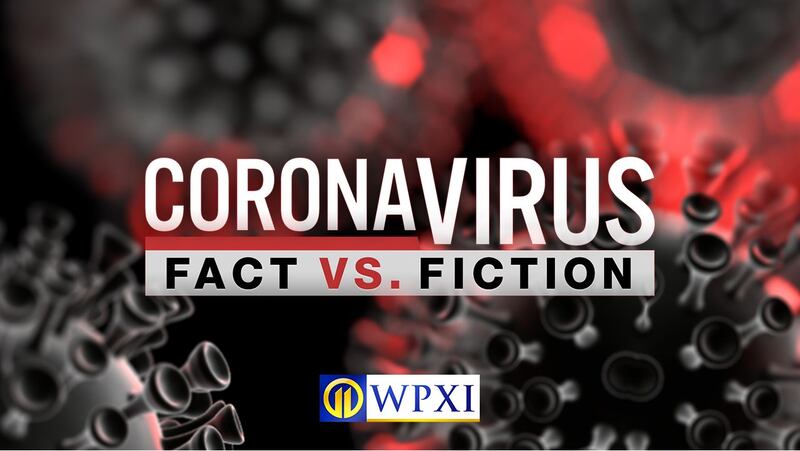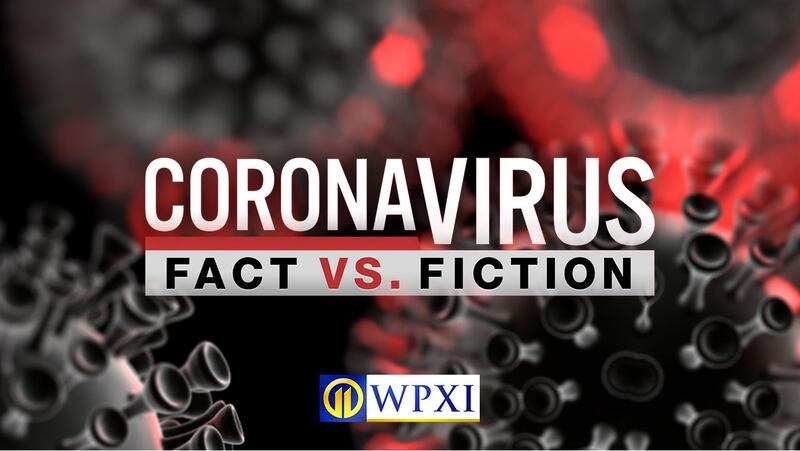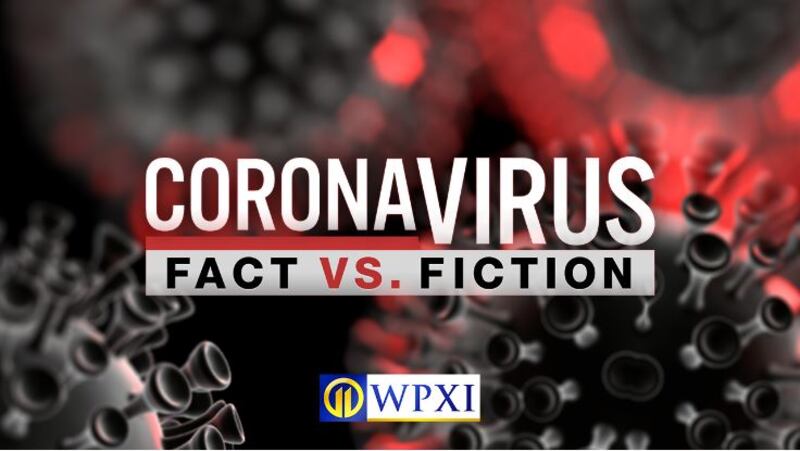PITTSBURGH — When it comes to the coronavirus, there’s a lot of misinformation out there, especially on social media. That’s why every day, 11 Investigates’ Angie Moreschi is going to break down what’s fact and what’s fiction.
May 1
Can lenders foreclose your home or repossess your car?
Many people are struggling to pay their bills right now. Among the biggest concerns for many are paying home loans and car loans.
For now, in most cases your lender cannot foreclose on your home or repossess your car.
Pennsylvania Attorney General Josh Shapiro negotiated a relief package for residents with major banks in the state.
"We are being able to offer 90-day forgiveness on things like mortgage and consumer loans and things like that, and so if you bank at Bank of America and one of the other dozen banks participating in what I call the Pa. Care Package, you could be entitled to some relief," said Shapiro.
That care package could give you significant help, but it's important to call your lender if you can't pay to work out the details.
If you're bank is participating in the Pennsylvania Care Package, you could be eligible for at least a 90-day grace period for your mortgage, other consumer loans – like car loans – and late fees.
And there's also a 60-day ban on foreclosures, which is based on when the participating bank joined the program.
Also, lenders are not supposed to report you to the credit bureaus if you seek relief. You will eventually have to pay any months you're skipping.
The best-case scenario is to get an agreement where they'll extend your loan without penalty and tack your payments onto the end of your loan.
The first step is to ask. If you don't do that, you won't get it automatically.
Click here to see the participating lenders via the Attorney General’s website.
April 24
What should you do if you haven’t paid your rent or utilities during the pandemic?
With many people dealing with financial hardship during the coronavirus pandemic, it’s become very tough for them to come up with cash to pay rent. So can you be evicted?
“You cannot be evicted from your home, from your apartment. Period. Hard stop. End of sentence," said Pennsylvania Attorney General Josh Shapiro.
Shapiro was able to negotiate an extension of the ban on evictions in the state until at least after July 15. This does not absolve people from paying rent, however. But what about your utilities?
“We worked with the Public Utility Commission to put in place a freeze on utility shutoffs - gas, water, electric, cable, things like that - so please know you’re not going to lose it during this time,” Shapiro said.
“Will you have to pay those bills all at once or can you set up payment plans?” asked 11 Investigates’ Angie Moreschi.
“You can set up payment plans. Every entity is going to be different. So I don’t think I can give you a one-size-fits-all, but we talked to many utilities that agreed to enter into payment plans with their customers,” Shapiro said.
If you are having a hard time financially during this crisis, you get some leniency, but not a free pass. It’s a good idea to call your utility companies now and set up a payment plan so you won’t be shocked by a big bill when things calm down.
April 21
Should you wipe down groceries?
According to the latest guidance from the FDA the answer is no.
The FDA recently issued an update saying, “there is currently no evidence of food packaging being associated with transmission of COVID-19.”
Our expert at Allegheny Health Network said the risk from groceries, if any, is very low. But if you want to be extra cautious, it can’t hurt.
"I think people who are immunosuppressed or very concerned, it’s reasonable to do a quick wipe down,” said Dr. Marc Itskowitz, of AHN internal medicine. “There are some laboratory studies looking at how long virus can live on things like plastic and cardboard, but in real life, when the virus is sent through the air in packages or trucks, it’s very unlikely to stay active long enough to actually infect people.”
FDA tips include:
- Limit time in store
- Prepare a list
- Wash hands
Can eating ice cream make you more vulnerable?
Here’s another food relate myth making the rounds on social media -- don’t eat ice cream because it can make you more vulnerable to coronavirus.
There is no evidence that avoiding ice cream or other cold foods will help prevent the coronavirus from taking hold.
This was circulating in an audio recording on social media and being attributed to UNICEF, but again, it is not true.
“There was a lot of discussion early on about putting hairdryers and putting hot foods to try and deactivate the virus. I think this is sort of the opposite type of argument where somehow cold foods would make the transmission more likely. There’s been no evidence of that, ” Itskowitz said." I think people should not eat a lot of ice cream because of health reasons, but that is fiction.
April 16
Do you have to pay back the stimulus check?
The answer is no. Taxpayers who qualify based on income under $99,000 a year will not have to pay back the stimulus money.
It is not a loan. Technically, the checks are tax credits for your 2020 tax return but they are basing the amount now on your 2019 or 2018 tax return.
if you end up making less in 2020, you could actually be eligible for more money. That will get settled up when you file your 2020 taxes. Also, you will not be penalized if you happen to make more this year.
The bottom line is you will not have to pay the stimulus money back.
Are the stimulus checks taxed?
The answer is no. You will not have to pay taxes on the stimulus money you get. This money is free and clear from Uncle Sam.
Do I get $500 for every dependent I claim?
The answer is no. It’s not all dependents. To qualify for that additional $500 payment. Your dependent must be under 17 years old.
That means, unfortunately, many high school and college students, and some elderly and disabled who are claimed as dependents, won’t be eligible to count for the purposes of a stimulus check.
We know a lot of people are saying that’s not fair.
On the other hand, for those who do have dependents under 17, there is no limit set on the number you can claim. You can get $500 for each and it should be tacked on top of what you’re already getting - not in a separate check.
April 13
Can coronavirus spread through soles of shoes?
According to the latest research, the answer is yes, and this is especially relevant for all of our front-line health care workers.
Researchers in China tested air and surface samples at a hospital in Wuhan. They found that about half of healthcare providers working in intensive care units carried the coronavirus on the soles of their shoe and transmitted it to floors in the hospital.
Because of this, researchers say they highly recommend people disinfect shoe soles before walking out of wards containing COVID-19 patients.
The CDC also said you can use a mixture of 70% alcohol and water to disinfect shoes and shoes made of cloth and leather can be cleaned using soap and water.
So, if you’re a front-line health care worker, be mindful. It is a good idea to take precautions with your shoes.
Can 5G spread coronavirus?
This is false. This one continues to persist online, but there is no evidence that 5G radio frequencies can cause the spread of coronavirus.
“There’s no merit to it. There’s no science to it. There’s no physical way that technology is there yet. Star Trek maybe, but not in the real world,” said Jacob Lott of Computer Doctors.
Angie: “There’s no connection to the radio wave carrying a virus?”
“A virus is a biological cell. So a biological cell is way more complex than we could currently even consider sending.” Lott said.
So bottom line --biological data, like a virus, is far too large and complex to transmit via 5G. So if you see that claim online, ignore it.
April 10
Do those on social security need to file taxes in order to get a coronavirus stimulus check?
The answer is no. Initially, it was believed seniors would have to file taxes — even though many on social security don’t file because their income is below the threshold.
But now, AARP says that confusion has been cleared up.
“The IRS did make an amendment to what they originally said, and if you’re a social security recipient, you’re going to receive your $1,200 even if you haven’t had to file a tax return in some time. You will get your money,” said Kathy Stokes, AARP director of fraud prevention.
If you’re on social security, it should come in the mail, unless the IRS has your checking account information on file.
AARP officials said anyone contacting you and asking for your checking account information on behalf of the IRS or government is a scam. Don’t give it to them.
Can cleaning the air ducts in your house prevent coronavirus?
Experts say doing annual maintenance on your heating and air conditioning system can make it run better, but it cannot protect you against coronavirus.
“No, changing your air ducts is a just a way for that air duct company to make money right now. It’s absolutely false,” said one expert.
For any company claiming it’s a cure, don’t buy it.
April 8
Are pregnant women at greater risk of getting the coronavirus?
There is nothing stronger than a mother’s bond with her child, so pregnant woman and new moms are understandably worried about the risk of transmitting coronavirus to their babies.
Channel 11’s Angie Moreschi talked to Dr. Paul Weinbaum, a maternal fetal specialist at Allegheny Health Network, to find out.
"The answers is - not by the data that we have currently. The other question is, are pregnant women at greater risk of getting sicker? Right now, reassuringly, it appears not,” he said.
Can you transmit the virus to your baby while you're pregnant?
"Generally speaking the impression there is now is there is not in utero transmission, however, there are a couple of cases where babies were born with antibodies to mothers who had been infected, so presumably it's possible but unlikely,” Weinbaum said.
As for the possibly of passing immunity along to your baby while in utero - so far, the data has shown that’s not happening with COVID-19.
It's believed because, so far, moms didn't have the virus early enough in pregnancy.
"That does happen in a lot of other viral illnesses that the baby actually has some protection when born, but that presumes the mother had an infection earlier in pregnancy,” Weinbaum said.
Is it safe to breastfeed?
One other question that a lot of moms are asking is about breastfeeding.
Both the World Health Organization and the American College of OB-GYNs said it is safe to do so.
"It appears there isn’t passage of the virus into breast milk,” Weinbaum said.
Of course, after birth, babies are just as susceptible to person-to-person transmission as anyone else, so be especially careful about social distancing, washing hands and cleaning frequently touched surfaces.
April 6
How long has the coronavirus been around?
Many people have said they were very sick back in December. Was that COVID-19? There is no evidence that people who had a bad cold or a bad respiratory infection in the fall or winter actually caught the coronavirus. Scientists believe COVID-19 started in China around that time, but that it had not yet been carried to other parts of the world.
Can freezing kill the coronavirus?
The World Health Organization said when it comes to the influenza virus, it can survive for at least one month at low temperatures. Freezing and refrigeration will not substantially reduce or kill that virus. There is simply not enough research conducted to know if low temperatures affect the coronavirus. Heating frozen food does kill viruses in general, however.
April 1
Are gastrointestinal issues a sign of COVID-19?
We know the main symptoms of COVID-19 are fever, cough, fatigue, body aches and shortness of breath. But now we’re hearing new reports some patients are experiencing gastrointestinal issues, as well.
“Some patients are experiencing gastrointestinal symptoms, like vomiting and diarrhea. Some clinical studies say up to 40% of patients were experiencing these symptoms,” Dr. Marc Itskowitz from Allegheny Health Network said.
According to Itskowitz, gastrointestinal issues usually present very early, even before respiratory symptoms.
He suggests drinking lots of liquids and said that if you feel light-headed or dizzy that could be a sign of dehydration.
Is pink-eye a sign of COVID-19?
Another one we've been hearing about is pinkeye. It turns out that in rare cases this could also be a sign of COVID-19. But ophthalmologists say it likely wouldn’t be your only symptom.
Can coronavirus live on shoes for 5 days?
This is a new variant of a concern we’ve covered several times before. We know some materials, like copper, only allow the virus to survive for a few hours. However, the virus can survive on other surfaces, like plastic, for several days.
For shoes, the answer is it’s possible, but there’s no direct evidence of that right now.
Infectious disease expert Mary Scmidt has said she believes it could live on leather for up to five days, but more research is needed.
The main way the virus is transmitted is through droplets, person-to-person, but it can’t hurt to take your shoes off before going inside, especially if you have children who spend a lot of time on the floor.
MARCH 31
Does wearing a mask in public protect you?
There's been much debate over whether face masks can provide protection for the general public during the coronavirus outbreak. So far, both the Centers for Disease Control and the World Health Organization have not recommended the general public wear masks, but that is now under review in Pennsylvania.
As we learn that so-called cough masks can provide at least some protection.
"My mask protects you. And your mask protects me. If someone is potentially having mild symptoms of COVID-19, if they wear a mask and could prevent large droplets from being dispersed into the air, then that would protect you, and for you would be the same for me,” said Pennsylvania Secretary of Health Dr. Rachel Levine.
So wearing a mask can provide some protection, but Allegheny Health Network physician Dr. Marc Itskowitz says it's important to wear it the right way.
"Securely fitted over your mouth and over your nose. You shouldn't be touching it or readjusting it when you're outside,” Itskowitz said.
And while a mask can provide some protection, it's not fool-proof, so continuing to take other precautions is imperative.
"It's part of the solution, but not the only solution,” Itskowitz said.
Angie: You don't want it to give people a false sense of security?
“That's correct. We don't want people going out in public needlessly just because they have a mask on,” Itskowitz said.
That means continue to wash those hands and continue to practice social distancing.
On a positive note, we are seeing signs that social distancing is beginning to work in the U.S.
In some parts of the country, that curve beginning to flatten a little. Itskowitz said that’s a good sign, but it’s still very important to continue that strategy.
MARCH 30
When it comes to mortality for COVID-19, are more men dying than women?
So far, the answer appears to be yes. In countries like Italy, men represent some 70 percent of those who’ve died, and a recent study out of China showed the fatality rate for men who had the virus was 2.8 percent -- compared to 1.7 percent for women.
Researchers say lifestyle could be the reason. Typically, men smoke more, drink more and are generally in worse health than women.
“Men are more likely to have co-morbid conditions which is high blood pressure, chronic lung disease, chronic heart disease and obesity, and those are some of the co-morbid conditions that have been shown to increase the risk of mortality.”
Angie: Are they more likely to get it or just to die of it?
"Right now, the data shows they are more like likely to die from it. The virus is likely to strike men as it is to women, but the outcomes in men are much worse,” said Dr. Marc Itskowitz of Allegheny Health Network.
Channel 11 is still waiting to get specific data on the mortality rate for men versus women here in the United States. Angie has a request in to the CDC for that and will let you know when we get it.
Are there 8 different strains of coronavirus circulating?
Yes. Scientists have tracked at least eight strains around the globe, but, and this is important, they are all very similar with only minor variations.
Experts sequencing the virus DNA said no strain appears to be more lethal than the others and the virus appears to mutate very slowly -- giving hope for developing a vaccine.
"So far, the good news is the strain has remained stable and what that will allow is for researchers to develop a vaccine based on that strain. We do think that once patients are infected and recover, they will not get reinfected with COVID-19,” said Itskowitz.
If you do get COVID-19, even though there are slightly different strains, it is believed you will develop antibodies that will protect you from getting it again.
MARCH 27
Is it safe to eat fresh produce?
This concern became very real this week when a woman was arrested in the Wilkes-Barre area after deliberately coughing and spitting over produce at a grocery store. Employees had to sanitize everything and throw away thousands of dollars’ worth of food.
Obviously that’s an extreme example, but it certainly raises the level of concern.
Thankfully, the CDC says it is safe to eat fresh produce but washing it properly is more important than ever.
The guidelines are to rinse it thoroughly under running water - and that includes anything with skin or peels, including bananas.
With that in mind, you should NOT use disinfectant wipes, bleach, rubbing alcohol or any type of detergent or soap to wash your food. Those cleaners are not safe for human consumption and could make you sick.
Cooking vegetables rather than eating them raw is also a good way to kill the virus.
Can garlic help protect against coronavirus?
This is a rumor we’ve seen shared widely on social media, and according the to Dr. Marc Itskowitz from Allegheny Health Network the answer is no, garlic does not protect against coronavirus.
“People have been talking about garlic for a long time in terms of lowering blood pressure and boosting the immune system, but garlic is not gonna be enough to protect patients. If patients want to protect themselves they have to wash their hands and they have to do social distancing," he said.
MARCH 26
Can taking antibiotics or getting the flu vaccine help protect you?
The general answer is no, doctors don’t think so.
“This is a virus and antibiotics are used against bacteria. Now, if a patient develops a bacterial infection we might recommend an antibiotic. Regarding the vaccine it is certainly a good idea to get those vaccines, but to this point, there is no evidence they will provide any protection against this novel or unique coronavirus," Dr. Mark Itskowitz said.
However, there is a limited study underway using an antibiotic that could offer some hope for treatment.
“There is one antibiotic called azythromycin, being combined with a medicine called hydroxy-chlorogine, being used in a very specific subset of patients and is showing some promising sings, but needs more study," Itskowitz said.
It’s important to remember not to take any medication or try home remedies without the direct supervision of your physician.
If you get coronavirus, can you still be contagious after the quarantine period?
Luckily here, the answer is also no.
“If patients were properly quarantined for the full 14 days, there’s no evidence those patients will pose a risk to anyone else," Itskowitz said.
MARCH 25
Is it safe to handle packages during the pandemic?
With many people staying and working at home, the amount of packages being delivered has increased.
According to the CDC, the risk of infection from packages is likely very low, but that doesn’t mean you shouldn’t take precautions.
Researchers believe coronavirus can live on cardboard for about 24 hours and plastic for up to two days.
With that in mind, experts recommend leaving packages outside for a full day before opening them, if you can. You can also wear gloves and use disinfectants on the package and its contents before bringing it inside.
It’s also a good idea to throw the box away after you open it and, of course, wash your hands.
MARCH 24
This time, Angie looked into a potential warning sign of the coronavirus.
Are loss of taste and smell signs of coronavirus?
We know that fever, dry cough and shortness of breath are early symptoms of the coronavirus, but we’re hearing new reports now of people losing their sense of taste and smell.
The World Health Organization says there have been cases now where people, in the early stages of disease, lose their sense of smell and taste.
Although experts don’t know for sure exactly why COVID-19 is doing this, we do know some viruses can affect the olfactory sensory neurons.
Loss of smell and taste seem particularly noticeable in mild cases of COVID-19, when patients have few or no other symptoms, so it could be a good early warning sign.
It is now recommended that people who lose their sense of taste and smell self-isolate for seven days, even if they have no other coronavirus symptoms.
Can you get COVID-19 more than once?
Right now, we don't know, for sure.
Normally, you expect when you get a virus, you build up an immunity to protect you against getting it again, but we don't have enough data on this when it comes to this new coronavirus.
It’s also important to remember not every symptom you experience could be the coronavirus, so if you do get sick again, it could be an entirely different virus -- like the flu or even allergies.
TRENDING NOW:
MARCH 23
Can UV light kill the coronavirus?
Industrial strength UV light can kill viruses and has been used to sanitize hotel rooms and even face masks. But the problem is using a commercial grade model on individuals can be a health hazard, leading to skin cancer and cataracts.
It is false that sunlight can kill the coronavirus. Experts said the UV light you get from the sun is not strong enough to be an effective disinfectant.
Can hot weather will kill the coronavirus?
That is unclear at this point.
"Coronavirus, in general, circulate more briskly during the winter months, but we don’t know if the change in genetic material with this virus will affect its ability to circulate in warm weather. Time, of course, will tell,” said Dr. Marc Itskowitz of Allegheny Health Network.
So, we hope that’s the case, but there is no scientific data to prove it at this point.
Is there an online foreign misinformation campaign about coronavirus?
This is true, according to Homeland Security and the U.S. State Department. They say thousands of Russia-linked social media accounts have launched a coordinated effort to spread alarm and misinformation.
These are often anonymous messages, like this audio recording: “If you cannot wash your clothes daily, hang them in direct sunlight, which also neutralizes the virus.”
As mentioned, there is no evidence that sunlight kills this coronavirus.
Can drinking hot water and eating more ginger can prevent COVID-19?
These are false claims and you are urged to be careful about what information they share on social media, because you might just be spreading bad information that could hurt people.
MARCH 20
There are a few theories circulating about exactly how the coronavirus pandemic started and that’s creating some confusion.
Angie looked into the following claims:
- Is the virus a man-made bioweapon that was created in Wuhan, China?
Most in the science community believe that is false. The virus did originate in Wuhan, but infectious disease researchers believe it started in a live market where live animals, dead animals and people are crammed into tight quarters as people shop for meat and produce.
It’s believed the original hosts were bats which then infected other animals which transmitted the disease to humans. There’s history to support that theory.
“Keep in mind there are precedents to coronaviruses and pandemics, namely SARS and MERS,” said Dr. Marc Itskowitz of Allegheny Health Network.
- Since researchers believe coronavirus can live on cardboard for 24-hours and plastic for 72-hours, is it safe to get take-out food?
Take-out is the only option for restaurants since dine-in service was banned. Most restaurants are taking additional precautions like wearing gloves and keeping their distance from customers.
“We’re telling our customers to make sure they pay by credit card. Trying to keep contact as least as possible. Not going into the home or place of business or whatever," said Allan Bross, owner of The Hangar in Moon Township.
So take-out is safe, but do take precautions.
For extra protection, you can weather gloves when you handle your take-out container. Take the food out and put it on a plate, then wash your hands before you eat.
Those are the facts. We’ll keep working to rule out the fiction for you and report back every day.
MARCH 19
Our furry friends are such a big part of our lives and a lot of us are worried about how the coronavirus impacts them.
Angie talked to a veterinarian to fact-check some claims about animals.
- Can pets carry or transit the virus?
"Right now, the World Health Organization is saying ‘no’ pets cannot carry the virus or transmit the virus and they’re not at risk of developing the disease COVID-19,″ said Dr. Leigh Hofmeister, a veterinarian.
- Should we put masks on our pets?
“It’s not necessary and it’s really not necessary for humans to do that either," Hofmeister said. “And it’s actually more stressful for your pet to have something like that on their face for no reason.”
More important is trying to keep their routine as normal as possible and staying up to date on regular pet care. It’s also a good idea to wash your hands after petting and playing with your pet.
- Does ibuprofen make COVID-19 symptoms worse?
A report out of France claimed ibuprofen made the symptoms worse, but as of right now, that’s believed to be FALSE. There is no strong evidence to support that claim and the World Health Organization does not recommend avoiding ibuprofen. If you’re concerned, you can take acetaminophen instead - which is the generic name for the medicine in Tylenol.
MARCH 18
She fact-checked two claims, including a viral video making its rounds across social media:
- Does breathing in “extremely hot air” can kill the coronavirus?
The video begins by talking about COVID-19 and the global pandemic, but it then creates confusion by switching to information on traditional coronaviruses. While past similar viruses, such as those that cause the common cold, are sensitive to heat, medical experts say COVID-19 is mutated and too new to know if it reacts the same way. This video’s claim is FALSE.
The video goes on to say breathing extreme heat in a sauna or even from a blow dryer can kill the virus in humans. That is a suggestion experts say is not only FALSE, but also could be harmful. “They could become dehydrated, they could dry out their mucosa. They could potentially put themselves at higher risk for infection," said Dr. Marc Itskowitz.
- Does drinking bleach can kill the coronavirus?
Simply put, this is FALSE. “Very bad advice. That is potentially very harmful. It can damage the respiratory mucosa, certainly the esophagus,” said Dr. Itskowitz.
MARCH 17
She took a look at three claims on social media to determine whether they’re true or false:
- Does gargling with water and salt or vinegar eliminate the virus?
Many of you have probably seen this meme on your social media feed. It says coronavirus lives in your throat for four days before it reaches your lungs. Even though gargling can help a sore throat, this is FALSE, according to our expert.
- Does drinking water every 15 minutes washes the virus into your stomach where it dies?
This claim says you should drink water every 15 minutes, so even if the virus gets in your mouth, the water will wash it down into your stomach, where stomach acid will kill the it This is also FALSE.
- Does holding your breath for 10 seconds without coughing shows you don’t have the coronavirus?
This claim is that if you can perform this self-test successfully, it shows you have no fibrosis in your lungs, and therefore, no infection. Once again, this is FALSE.
“It’s certainly true if you’re able to perform that maneuver, it’s likely that you don’t have fibrosis, but the opposite is not true. It does not rule out the possibility of coronavirus infection,” said Dr. Marc Itskowitz, of Allegheny Health Network.
© 2020 Cox Media Group

